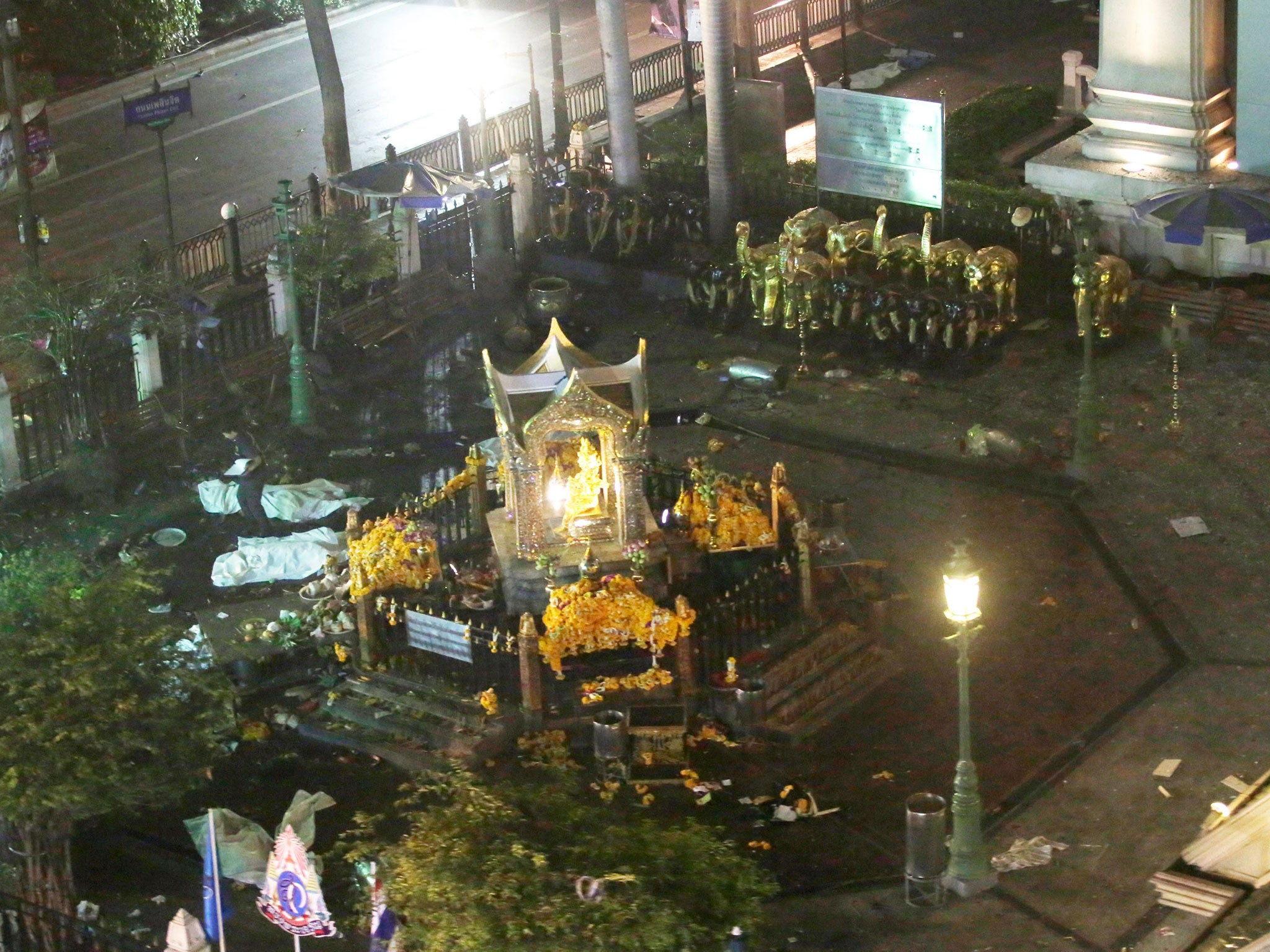Bangkok bomb: Expectation of bombers will be that this devastation deters prospective visitors
Previous incidents and unrest haven't dented Thailand's 'Land of Smiles' tag


Your support helps us to tell the story
From reproductive rights to climate change to Big Tech, The Independent is on the ground when the story is developing. Whether it's investigating the financials of Elon Musk's pro-Trump PAC or producing our latest documentary, 'The A Word', which shines a light on the American women fighting for reproductive rights, we know how important it is to parse out the facts from the messaging.
At such a critical moment in US history, we need reporters on the ground. Your donation allows us to keep sending journalists to speak to both sides of the story.
The Independent is trusted by Americans across the entire political spectrum. And unlike many other quality news outlets, we choose not to lock Americans out of our reporting and analysis with paywalls. We believe quality journalism should be available to everyone, paid for by those who can afford it.
Your support makes all the difference.Ever since Thailand graduated from backpacker haven to mainstream tourist destination in the 1970s, the nation has maintained two very different faces. For many visitors, the country lives up the “Land of Smiles” tag and the promise of carefree holidays from trekking to spa treatments. But a less-appealing dimension is the chronic political turmoil centred on Bangkok and the long-standing insurgency in the deep, troubled south of Thailand.
Many millions of tourists, including a growing contingent from China, travel Into this uneasy equilibrium each year. Nearly one million travel from Britain alone. Many are gap-year travellers, for whom Thailand represents the ideal place to combine exploration with cheap and easy beachside living. But it is also a draw for better-heeled tourists who seek serenity along with sunshine.
Events such as the closure of the main international airport in 2008, and violent confrontations on the streets of Bangkok that led ultimately to the military junta in power today, have failed to dent Thailand’s popularity.
Until now, tourists harmed in the violence have generally been unlucky bystanders; the vast majority of Thai people are genuinely welcoming and anxious to ensure that visitors leave only with good memories.
But the carnage at the heart of the Thai capital changes the game. As atrocities in Tunisia, Egypt and Bali have shown, murdering tourists is seen as a brutally effective way to deter visitors and thereby undermine the economy.
For anyone exploring the country, Bangkok has always been an essential component of the Thai experience - partly because of its role as the transportation hub for the nation but also due to the city’s wealth of attractions, from shrines to shops. Future visitors may choose to bypass the capital, but the signal from the bombers is that tourists anywhere in Thailand are now considered legitimate targets.
Statistically, the risk for any individual traveller of being caught up in a murderous attack remains very low. But the expectation of the bombers is that the shocking scenes of devastation will deter prospective visitors, especially from China and other Asian nations.
The likely chain of events is all too familiar. While prospective tourists with paid-for trips will mostly travel as planned, new bookings may dwindle - threatening the livelihoods of thousands, and intensifying the national instability.
The response of Western governments from Britain to Australia has been measured, stopping well short of warning against travel to Thailand. But if the regime in Bangkok seeks to use the bombing to stifle internal dissent still further, the future could turn uglier still.
Join our commenting forum
Join thought-provoking conversations, follow other Independent readers and see their replies
Comments